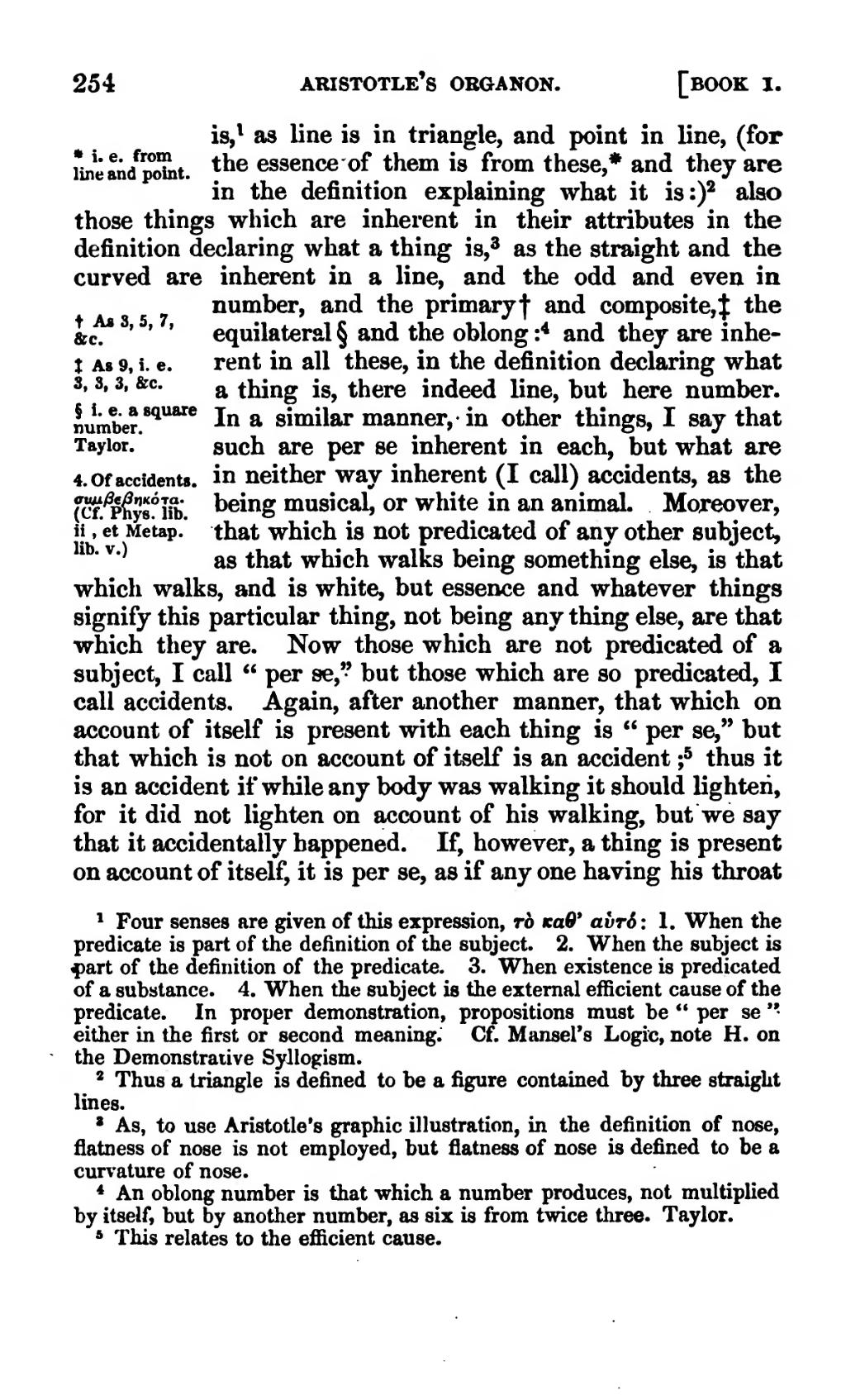is, as line is in triangle, and point in line, (for the essence of them is from these, and they are in the definition explaining what it is:) also those things which are inherent in their attributes in the definition declaring what a thing is, as the straight and the curved are inherent in a line, and the odd and even in number, and the primary and composite, the equilateral and the oblong: and they are inherent in all these, in the definition declaring what a thing is, there indeed line, but here number. In a similar manner, in other things, I say that such are per se inherent in each, but what are in neither way inherent (I call) accidents, as the being musical, or white in an animal. Moreover, that which is not predicated of any other subject, as that which walks being something else, is that which walks, and is white, but essence and whatever things signify this particular thing, not being any thing else, are that which they are. Now those which are not predicated of a subject, I call "per se," but those which are so predicated, I call accidents. Again, after another manner, that which on account of itself is present with each thing is "per se," but that which is not on account of itself is an accident; thus it is an accident if while any body was walking it should lighten, for it did not lighten on account of his walking, but we say that it accidentally happened. If, however, a thing is present on account of itself, it is per se, as if any one having his throat
